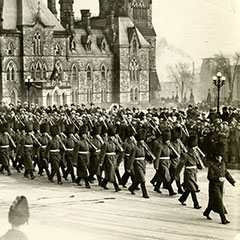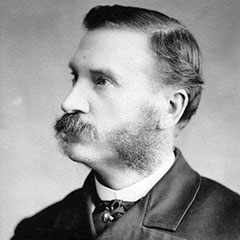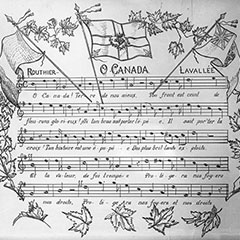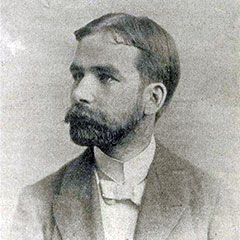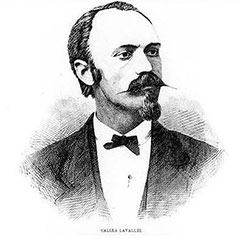Canada Day
July 1 st celebrates the anniversary of the creation of the Canadian Federation by the British North America Act in 1867. As early as the following year, a proclamation encouraged the people of this young country to commemorate this special date, and only a dozen years later, July 1 st became a national holiday. Even so, many Canadians who are still attached to the British Empire favour Victoria Day, which has been celebrated since May 1845.
The tradition of holding official ceremonies really began on the country’s 50 th anniversary in 1917. The custom was repeated every decade after that. It is only in 1958 that the festivities became an annual occurrence. The Canadian Government organized celebrations including a pledge to the Canadian flag on Parliament Hill, an official ceremony, a military music concert, and fireworks. The Centennial of Confederation in 1967 resulted in many special events and, from that date forth, each Canada Day has been celebrated with a lavish production on Parliament Hill. The concert is broadcast on television throughout the country.
Until 1975, the main festivities went on in the National Capital Region. Nowadays, shows and popular activities are held all over the country, and millions of Canadians celebrate Canada Day with songs and music.
Across Québec, the province’s larger cities plan free shows, family activities and fireworks for the public to enjoy while celebrating the great Canadian holiday.
O Canada: The Country’s National Anthem
The music of Canada’s national anthem was written by famed composer Calixa Lavallée. The original French lyrics are based on a poem by Sir Adolphe-Basile Routhier. The song was created in response to a request made by His Honour the Lieutenant Governor of Québec, Théodore Robitaille, during the French-Canadian National Congress in June 1880.
As years passed, more than twenty English versions were submitted, but the most commonly used lyrics were written by the Honourable Robert Stanley Weir for Québec City’s Tricentennial anniversary in 1908.
It was only on July 1 st 1980, a century after its first public performance, that O Canada officially became the country’s national anthem. Torn between the God Save the Queen and O Canada, then undecided as to which English version was the best, Members of Parliament took one hundred years to rule on it.
English Version
O Canada!
Our home and native land!
True patriot love in all thy sons command
With glowing hearts we see thee rise
The True North strong and free!
From far and wide,
O Canada, we stand on guard for thee.
God keep our land glorious and free!
O Canada, we stand on guard for thee.
O Canada, we stand on guard for thee.
French Version
Ô Canada !
Terre de nos aïeux,
Ton front est ceint de fleurons glorieux !
Car ton bras sait porter l'épée
Il sait porter la croix !
Ton histoire est une épopée
Des plus brillants exploits
Et ta valeur, de foi trempée
Protégera nos foyers et nos droits
Protégera nos foyers et nos droits.
O Canada
Download audio (2 minutes 50 seconds, 2.61 MB )
Male voice (Joseph Saucier) singing the Canadian national anthem accompanied by piano.
Composer: Calixa Lavallée
Lyrics: Adolphe-Basile Routhier (French) and Robert Stanley Weir (English)
Performer: Joseph Saucier, 1920
Source: BAnQ – Digital collection [sound recordings]
Your brow is wreathed with glorious flowers!
For your arm can carry a sword,
It can bear the cross!
Your story is an epic tale
Of the most brilliant exploits.
And your value, of resilient faith,
Will protect our homes and our rights,
Will protect our homes and our rights.
Under the eye of God, near the giant river,
The Canadian grows in hope.
He was born of a proud race,
Blessed was his cradle.
The sky marked his destiny
In this new world.
Always guided by its light,
He will guard his flag’s honour,
He will guard his flag’s honour.

